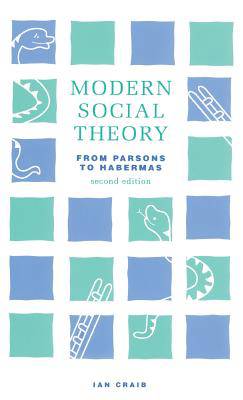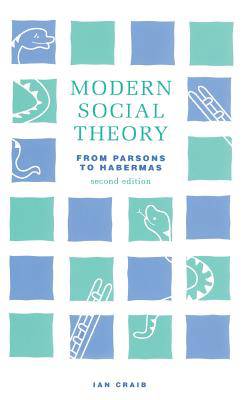
En raison d'une grêve chez bpost, votre commande pourrait être retardée. Vous avez besoin d’un livre rapidement ? Nos magasins vous accueillent à bras ouverts !
- Retrait gratuit dans votre magasin Club
- 7.000.000 titres dans notre catalogue
- Payer en toute sécurité
- Toujours un magasin près de chez vous
En raison de la grêve chez bpost, votre commande pourrait être retardée. Vous avez besoin d’un livre rapidement ? Nos magasins vous accueillent à bras ouverts !
- Retrait gratuit dans votre magasin Club
- 7.000.0000 titres dans notre catalogue
- Payer en toute sécurité
- Toujours un magasin près de chez vous
Description
The revised edition of this widely acclaimed textbook provides a clear, accessible and comprehensive introduction to modern social theory.As with the first edition, the book is based around the themes of structure and action. After the introductory chapters which examine the nature of theory and its role in the social world, the book then turns to theories of action and the inability of those theories to comprehend social structures in a coherent way.Part 1 covers: Parson's structural-functionalism and the development of conlict theory and neofunctionalism; rational choice theory; symbolic interactionism; ethnomethodology and structuration theory.Part 2 looks at structuralism, structuralist Marxism, and the development of post-structuralist and postmodernist theory.Part 3 examines Critical Theory and the work of Jurgen Habermas.In conclusion, Ian Craib discusses current trends in theory and what might be expected in the future.This second edition has been revised throughout. There are new chapters on rational choice theory and structuration theory and existing chapters have been extended to deal with the development of neofunctionalism, postmodernism and the recent works of Habermas as well as recent developments in other approaches.Throughout, the aim of the book is to demystify a diffcult subject area, emphasising the practical and everyday nature of theoretical thinking in the context of making sense of a rapidly changing world. The late Ian Craib was Lecturer in Sociology at the University of Essex.
Les avis
Nous publions uniquement les avis qui respectent les conditions requises. Consultez nos conditions pour les avis.







